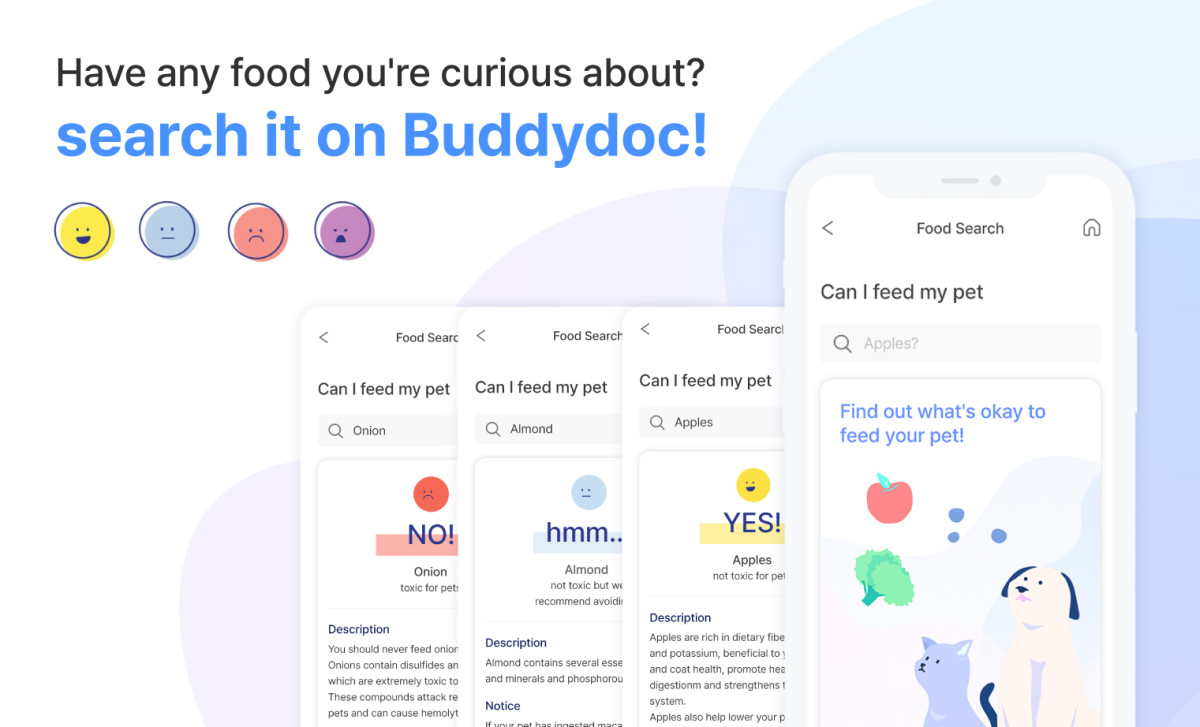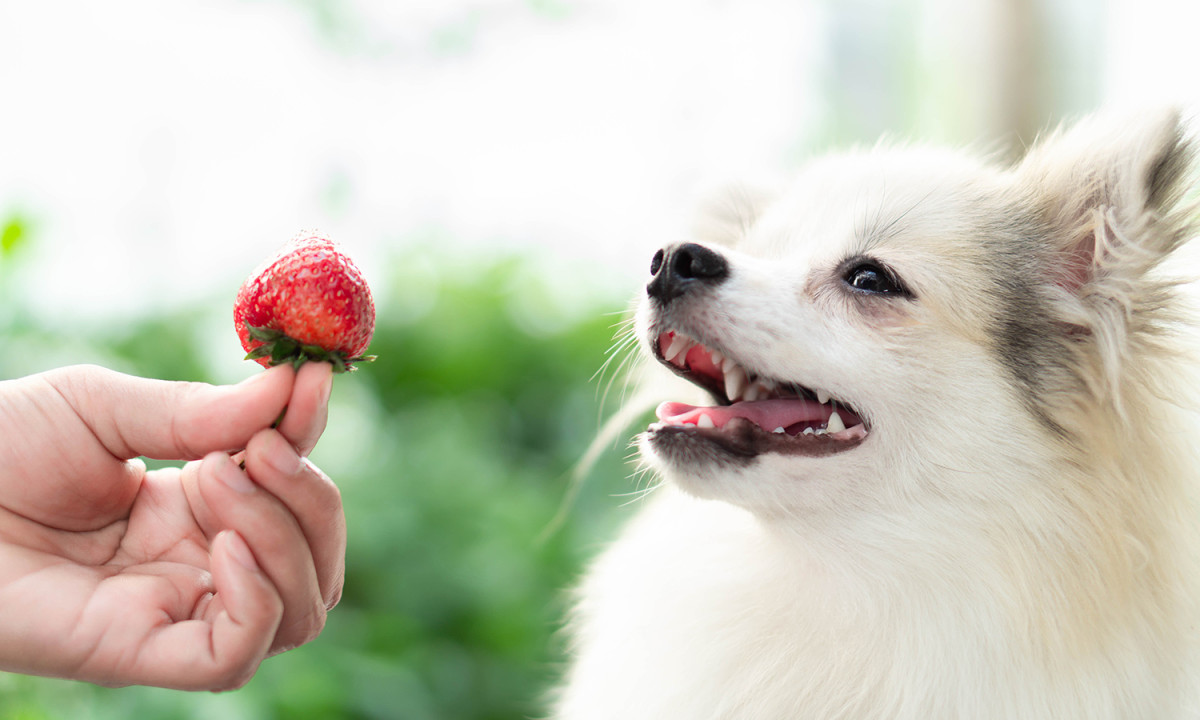FOOD
The Sweet Truth: Why Dogs Can Safely Enjoy Strawberries as a Tasty and…
페이지 정보
본문
Looking for a guilt-free way to spoil your furry friend? Look no further than the humble strawberry. These juicy and vibrant berries don't just make a delightful snack for us humans; they can also be a tasty and nutritious treat for our beloved canine companions. But before you start sharing your strawberry stash with your four-legged buddy, it's important to understand the benefits and precautions associated with feeding them this sweet treat. In this article, we'll explore the sweet truth about dogs and strawberries, delving into why these berries are safe for our furry friends and how they can contribute to their overall health and well-being. From their antioxidant-rich properties to their high vitamin C content, we'll uncover why strawberries can be a delightful addition to your pup's diet. So, grab a handful of strawberries and let's dive into the world of canine-friendly fruit treats!
Nutritional benefits of strawberries for dogs
Strawberries aren't just a tasty treat; they also pack a nutritional punch that can benefit your furry friend. These berries are low in calories but high in essential nutrients, making them a healthy addition to your dog's diet. One cup of strawberries contains about 50 calories, which makes them a great option for dogs who need to maintain a healthy weight or are on a restricted diet.
In addition to being low in calories, strawberries are also a rich source of vitamins and minerals that can support your dog's overall health. They are packed with vitamin C, which is known for its immune-boosting properties. Vitamin C plays a crucial role in supporting your dog's immune system, helping them fight off infections and stay healthy. Moreover, strawberries are also a good source of dietary fiber, which can aid in digestion and promote a healthy gut.
Not only do strawberries provide essential vitamins and minerals, but they are also high in antioxidants. Antioxidants help protect the body against free radicals, which can damage cells and lead to various health issues. By incorporating strawberries into your dog's diet, you can help support their overall well-being and keep them feeling their best.
Health considerations when feeding strawberries to dogs
While strawberries offer numerous health benefits for dogs, it's important to consider a few factors before introducing them into your pet's diet. One such consideration is the presence of allergies or sensitivities. Just like humans, dogs can develop allergies to certain foods, including strawberries. If you notice any signs of an allergic reaction, such as itching, swelling, or gastrointestinal distress, it's best to consult with your veterinarian before feeding your dog strawberries.
Another important consideration is the sugar content of strawberries. While strawberries are relatively low in sugar compared to other fruits, they still contain natural sugars that can cause weight gain or other health issues if consumed in excess. It's essential to moderate the amount of strawberries your dog consumes and take into account their overall diet and calorie intake.
Additionally, it's crucial to remember that strawberries should only be given to dogs as a treat and not as a substitute for a balanced diet. Dogs have specific dietary requirements, and while strawberries can be a healthy addition, they should not replace essential nutrients obtained from a complete and balanced dog food. Always consult with your veterinarian to ensure that your dog's diet meets their specific needs.
How to safely prepare strawberries for dogs
Before offering strawberries to your furry friend, it's essential to properly prepare them to ensure safety and minimize any potential risks. Start by selecting fresh, ripe strawberries that are free from mold, rot, or any signs of spoilage. Organic strawberries are a great choice, as they are free from pesticides and other potentially harmful chemicals.
Once you have chosen the perfect strawberries, it's time to prepare them for your dog. Start by washing the strawberries thoroughly to remove any dirt or residue. You can do this by gently rinsing them under cool running water. Be sure to remove the tops and stems, as they can be a choking hazard for your dog.
After washing and removing the tops, it's time to decide how to serve the strawberries to your furry friend. Some dogs may prefer whole strawberries, while others might enjoy them sliced or mashed. You can experiment with different serving methods to find out what your dog prefers. Regardless of how you serve the strawberries, always ensure that they are bite-sized and easy for your dog to consume.
Serving size and frequency for dogs
While strawberries can be a healthy addition to your dog's diet, it's important to remember that moderation is key. The serving size of strawberries for dogs will depend on their size, age, and overall health. As a general guideline, it's recommended to start with small portions and observe how your dog reacts.
For small dogs, start with one or two bite-sized strawberries and monitor their response. If your dog tolerates strawberries well and shows no signs of digestive upset, you can gradually increase the serving size. However, it's important not to exceed more than 10% of your dog's daily caloric intake from strawberries.
When it comes to frequency, it's best to offer strawberries as an occasional treat rather than a daily snack. This ensures that your dog's diet remains balanced and doesn't become overly dependent on one particular food. Consulting with your veterinarian can provide further guidance on the appropriate serving size and frequency based on your dog's specific needs.
Potential risks and precautions when feeding strawberries to dogs
While strawberries are generally safe for dogs to consume, there are a few potential risks and precautions to keep in mind. As mentioned earlier, some dogs may have allergies or sensitivities to strawberries. If your dog has never had strawberries before, it's important to introduce them slowly and monitor for any adverse reactions.
Furthermore, the seeds of strawberries can pose a choking hazard for dogs, especially small breeds or dogs that tend to swallow their food without chewing. To minimize this risk, it's best to remove the seeds or choose seedless strawberries when feeding them to your dog.
Lastly, it's crucial to always feed strawberries in moderation. While they offer numerous health benefits, excessive consumption can lead to digestive upset, diarrhea, or weight gain. By following the recommended serving size and frequency, you can ensure that your dog enjoys the benefits of strawberries without any adverse effects.
Other fruits that are safe for dogs to eat
If you're looking to expand your dog's fruit options beyond strawberries, there are several other fruits that are safe and healthy for dogs to enjoy. Some popular choices include:
⦁ Blueberries
Like strawberries, blueberries are packed with antioxidants and can provide numerous health benefits for dogs. They are low in calories and high in vitamins and minerals, making them a great addition to your dog's diet.
⦁ Watermelon
This hydrating fruit is a favorite among many dogs. It's low in calories and high in vitamins A and C, as well as lycopene, which has been linked to heart health.
⦁ Apples
Apples are a good source of dietary fiber and vitamin C. Just make sure to remove the seeds and core before offering them to your dog.
⦁ Bananas
Bananas are a great source of potassium, vitamin C, and vitamin B6. They are also easy to digest, making them an excellent choice for dogs with sensitive stomachs.
When introducing new fruits to your dog's diet, it's important to start with small portions and monitor their response. Some dogs may have sensitivities or allergies to certain fruits, so it's crucial to be cautious and consult with your veterinarian if you have any concerns.
Homemade dog treats with strawberries
If you're feeling adventurous and want to treat your dog to something special, why not try making homemade dog treats with strawberries? Not only will your furry friend love the taste, but you'll also have the peace of mind knowing exactly what ingredients are going into their treats.
Here's a simple recipe for strawberry dog treats:
Ingredients:
- 1 cup of mashed strawberries
- 1 ½ cups of whole wheat flour
- 1 egg
- ¼ cup of water
Instructions:
1. Preheat your oven to 350°F (175°C) and line a baking sheet with parchment paper.
2. In a mixing bowl, combine the mashed strawberries, whole wheat flour, egg, and water. Mix well until a dough forms.
3. Roll out the dough on a lightly floured surface to about ¼ inch thickness.
4. Use cookie cutters to cut out shapes or simply use a knife to cut the dough into small squares.
5. Place the treats onto the prepared baking sheet and bake for approximately 15-20 minutes, or until they turn golden brown.
6. Allow the treats to cool completely before offering them to your dog.
These homemade strawberry dog treats are a great way to spoil your furry friend while also providing them with the nutritional benefits of strawberries. Just remember to store the treats in an airtight container in the refrigerator to maintain freshness.
Conclusion and final thoughts on feeding strawberries to dogs
In conclusion, strawberries can be a delightful and nutritious treat for your canine companion. Packed with vitamins, minerals, and antioxidants, these sweet berries offer numerous health benefits without adding excessive calories to your dog's diet. However, it's important to introduce strawberries gradually, monitor for any adverse reactions, and always feed them in moderation.
Remember to consult with your veterinarian to ensure that strawberries are suitable for your dog's individual needs. By following these guidelines and considering your dog's unique dietary requirements, you can safely enjoy the sweet truth of feeding strawberries to your furry friend. So go ahead, share a tasty and nutritious treat with your beloved pup and watch their tail wag with delight!
 Does your dog also look up at you with those puppy dog eyes whenever you are snacking on something? You know foods like chocolates should not be shared with them but do you search the Internet every time if it’s okay to share a bite of whatever you are eating? The Buddydoc Food Dictionary provides information on hundreds of foods that we consume and informs you whether it is safe for them to consume and the nutritional benefits for your pet. If you're curious about other foods, try searching on Buddydoc!
Does your dog also look up at you with those puppy dog eyes whenever you are snacking on something? You know foods like chocolates should not be shared with them but do you search the Internet every time if it’s okay to share a bite of whatever you are eating? The Buddydoc Food Dictionary provides information on hundreds of foods that we consume and informs you whether it is safe for them to consume and the nutritional benefits for your pet. If you're curious about other foods, try searching on Buddydoc!













